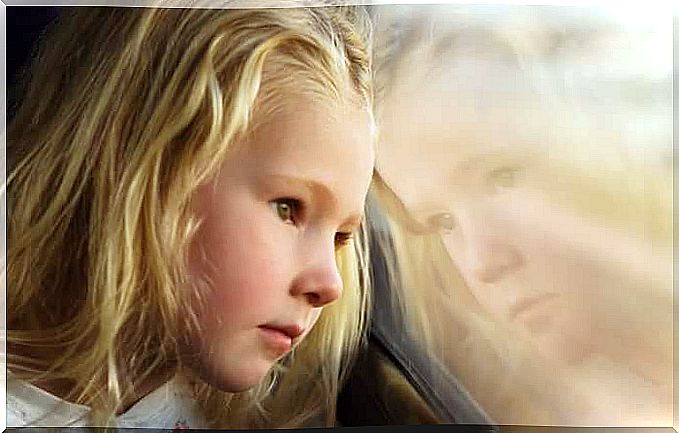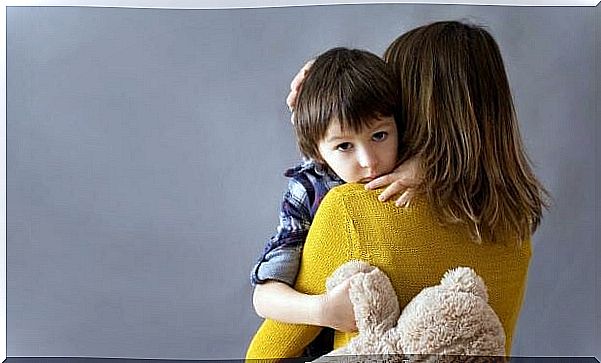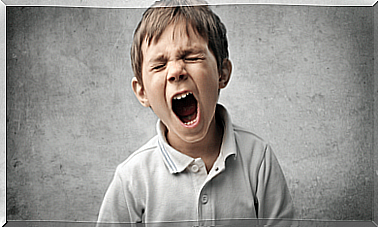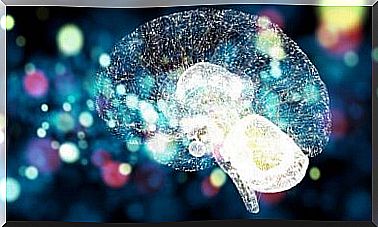Children Of A Depressed Mother

Human beings are largely the fruit of our environment. The people who take care of us during our early years are of decisive importance in who we will be, they leave an indelible mark. Hence, there are certain traits that differentiate children from a depressed mother.
Some studies have shown that the brains of the children of mothers with a mental disorder present differences with respect to the others. The amygdala is larger, although the neurophysiological cause of this is not yet known. The extent of its consequences is also unknown. It has only been seen that it is a condition that appears in children with affective deprivation. The incidence of a depressed mother is so great that it even leaves physical traces.
The depressed mother and her environment
Although it is not usual, it is possible for some mothers to experience a stage of depression after having their babies. It would be the so-called postpartum depression. It is due in part to the hormonal changes associated with motherhood. However, this also involves a kind of updating of the bond that each mother had with her parents at birth. If this was not positive, the sadness tends to intensify.

Typically, postpartum depression dissipates in a relatively short period of time. However, when other problems are associated, the sadness may spread and deepen. Thus arises the phenomenon of depressed mothers as a consequence of the parenting process. Other mothers were already depressed before gestation, and this condition is intensified with childbirth.
Of course, maternal depression doesn’t just emerge at the time of having a child. This condition can appear at any time in life. However, the most decisive effect on the well-being of the child occurs during critical moments, such as the first years of life or the stage of adolescence.
The role of a child in a depression
On some occasions, the depressed mother gives a role of “balm” to her children. This means that they assign them a role within their problems: that of being a consolation for their sadness. Children become an oasis of well-being, amid the aridity of the mother’s emotional world.

This may indeed be beneficial to the depressed mother. However, the consequences for the child can be negative in the long term. Unconsciously, the child learns to play a role that does not correspond to him. Learn to “be for her” and not “for himself.” In other words, he internalizes the needs of his caregiver and gives up his individuation process.
At other times, the depressed mother does not perceive her child as a comfort, but as a burden. This occurs, above all, in pregnancies that have not been actively sought. These women may try to minimize their presence in children’s lives, as well as limit their expressions of affection. They evade the baby. They try to ignore your needs. This generates in the little one a feeling of strangeness and great difficulty in giving meaning to their own existence.
The depressed mother and teenagers
Adolescence is another of those sensitive stages, where the presence of a depressed mother can have a great impact. It is common for the depression of the adult to compete with that of the child, and this leads to a heap of mutual blame. The results of this interaction can become unpredictable.
Some teens turn the bond with their depressed mother into a battlefield. There is no place for truces of any kind there. Usually this causes a succession of injuries on the part of both. It is frequent that in these dramatic scenarios everything culminates with exaggerated and insurmountable distances for many years.
There is also the case of children who, due to insecurity or excessive dependence, end up accepting to be blamed by the depressed mother. They decide then to repair that unfathomable pain that they perceive in her. Thus, dependency is transformed into symbiosis and is perpetuated over time. The umbilical cord remains in force, even until death.

A depressed mother may not be available psychologically to fully meet the emotional, and sometimes physical, needs of her children. So one of the best things you can do for yourself and your children is to treat your depression professionally. Otherwise, not only will it be more difficult for them to enjoy motherhood, but they also run the risk of causing long-term harm to little ones.









